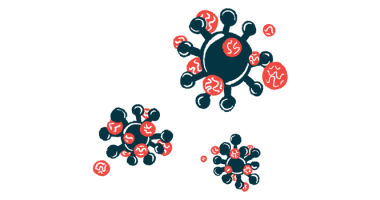Soliris Treatment Resolved aHUS in 2 Patients with Inflammatory Bowel Disease, Study Reports

Treatment with Soliris (eculizumab) led to successful resolution of atypical hemolytic uremic syndrome (aHUS) that was triggered by inflammatory bowel disease (IBD), a study of two cases has found.
The study, “Successful use of eculizumab to treat atypical hemolytic uremic syndrome in patients with inflammatory bowel disease,” was published in the Thrombosis Journal.
aHUS results from activation of the complement system — a set of more than 20 blood proteins that form part of the body’s immune defenses — which can be induced by autoimmune diseases. IBD is within this group of disorders because it’s characterized by inflammation in the gut.
However, only four cases of aHUS as a result of underlying IBD has been reported to date. In the study, researchers with the David Geffen School of Medicine at UCLA described two more such cases.
The first case was of a 19-year-old white male who was diagnosed with Crohn’s disease — one of the major forms of IBD — at the age of five in 2005. At the time, he had several clinical features of aHUS, such as elevated lactate dehydrogenase (LDH; increased upon red blood cell destruction), low platelet counts, and anemia.
In addition to standard IBD treatments such as adalimumab (available as Humira and biosimilars), the patient was started on the complement-blocking therapy Soliris. He experienced clinical improvement over several months, prompting discontinuation of Soliris treatment, which was followed shortly thereafter by a relapse. Restarting treatment helped reduce complement activation, which led to successful weaning off of Soliris.
In April 2010, the patient experienced a severe IBD flare while still on adalimumab, which was accompanied by significant increases in LDH and serum creatinine (a kidney function marker), as well as a low platelet count. Soliris treatment was promptly restarted. After 900 mg weekly infusions normalized his platelet count and LDH levels, the dose regimen was changed to 1,200 mg every two weeks for eight and a half years.
At the study’s completion, the patient’s blood tests and kidney function were within normal ranges, and his IBD was being effectively managed. He is expected to continue on Soliris throughout his life, given his two prior relapses. No antibodies against complement factors nor genetic mutations have been found.
The second case involved a 49-year-old white female with ulcerative colitis (the other main form of IBD), who experienced a disease flare while on steroid therapy and mercaptopurine (6-MP). One month later, she was admitted to the emergency room, and tests revealed she had low levels of platelets, LDH, and hemoglobin, which suggested aHUS. This was further supported by an ADAMTS13 level of 80.8%, which ruled out thrombotic thrombocytopenic purpura as the disease may be caused by mutations in the ADAMTS13 gene.
This patient was started on Soliris, first at 900 mg weekly and then at 1,200 mg infusions every other week, which resolved all biochemical changes. When the study was completed, the patient was undergoing further aHUS-related genetic and immunological testing at The University of Iowa.
“We report a series of two patients with two variants of IBD presented with a very rare association with aHUS,” the scientists wrote.
“Interestingly, both patients had poorly controlled IBD at the time of aHUS diagnosis. The patients’ IBD … was eventually well controlled with intensive IBD therapy, alongside complement blockade for aHUS,” they added.






